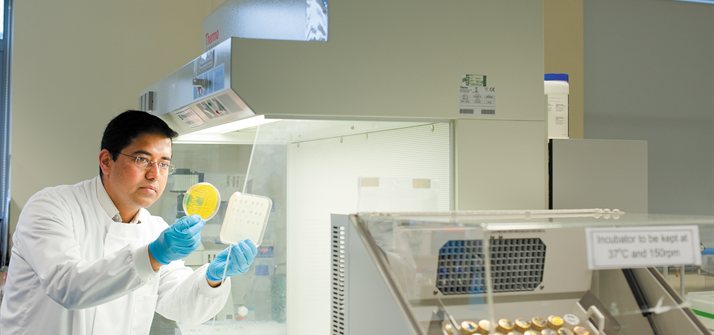Working in research and development with a veterinary degree

This area, commonly referred to as 'R&D' may appeal to you if you enjoyed the lab research side of veterinary training and consider yourself to be a scientist at heart, as well as a practitioner.
You may already be aware of some of the companies that supply practices with drugs and other medical products. One of the alternative careers for vets is in the research and development process that results in such treatments.
You may also be interested in: science careers beyond the lab
Working in research and development (R&D)
R&D scientists work within biotechnology and pharmaceutical firms.
Distinctions between the two types of firms have traditionally existed, but some think these are becoming less valid as they both work to develop the same kind of products; new drugs, animal health products, livestock feed supplements, vitamins, and a host of other goods.
Pharmaceutical companies typically employ "empirical screening" to develop drugs – they take natural compounds with a known physiological effect – like blood pressure – and screen for that effect.
Biotechnology uses "genetic engineering" technology in its research. Biotech was originally based around molecules, called monoclonal antibodies, which mimicked certain proteins or other molecules to target a specific cell area.
Biotechnology companies are seen as "young, entrepreneurial and emerging", that develop products in the areas of DNA, RNA, etc.
A typical day in this area of work may involve designing and conducting experiments, interpreting data, teaching and supervising others, project management, writing reports and scientific papers, and keeping up-to-date with new developments.
You would normally be working in a small team with other scientists.
The vast majority of roles require you to have completed a PhD as this will develop your scientific knowledge as well as your laboratory research skills.
In addition to such technical scientific skills, recruiters often focus on the following transferable qualities:
- Written and verbal communication
- Conflict management and interpersonal
- Team work
- Analytical/data analysis
- Leadership and project management
- Flair for innovation
- Problem-solving
- Attention to detail while being able to see the larger picture
- Prepared to do repetitive tasks
- Able to work independently, with little supervision
- Presentation skills
- Computing skills
- Time management/organisation
Your veterinary training is advantageous in that it has given you a solid scientific foundation and it is evidence of your passion for wanting to improve the health of animals through evidence-based practice.
The research skills needed in R&D significantly surpass what you will have previously experienced, hence why it is a common requirement to have completed a PhD to go into a research and development role.
Finding employment and potential salaries
For most R&D vacancies requiring specialist postgraduate skills, relevant scientific magazines and websites such as New Scientist, or a company's own website are great places to start.
Local science parks may be a good source of small companies – see the further resources section.
Veterinary pharmaceutical companies
Internships may be a way to gain further insight before committing to a PhD. Many formal internship schemes will mainly be aimed at students or recent graduates
Recruitment agencies
Many commercial scientific organisations also use recruitment agencies.
As a starting point, try using veterinary-focused recruitment agencies such as Recruit4Vets.
For a more general list of recruitment agencies that provide staffing for biotech and pharmaceutical organisations, visit Agency Central, Scientific Recruitment Group, and MatchTech.
Potential salaries
If you are entering this field at a junior level without a PhD, you can expect to earn between £18,000 and £25,000.
With a PhD and perhaps a couple of years of post-doctoral experience, you may expect to around around £35,000.
Further resources including job hunting sites
© CoSector, University of London. Used with permission.